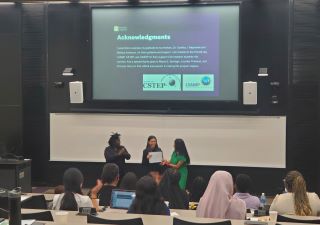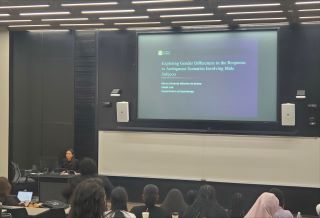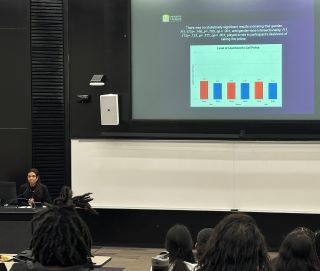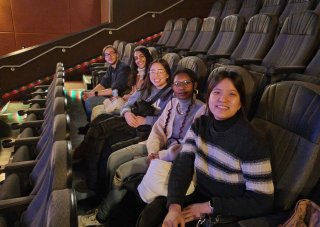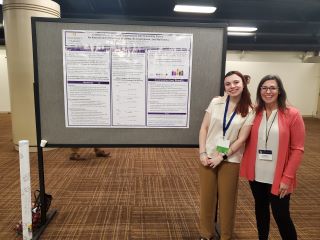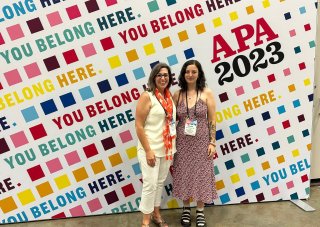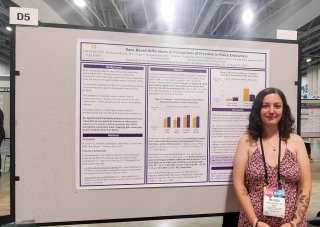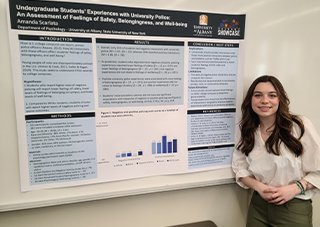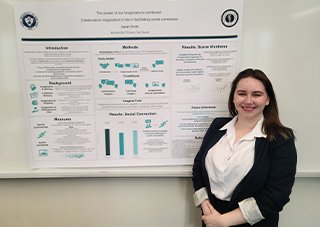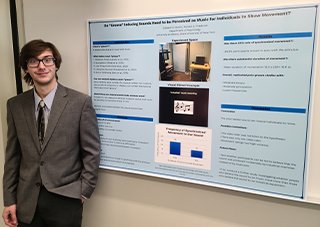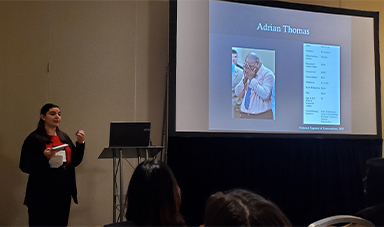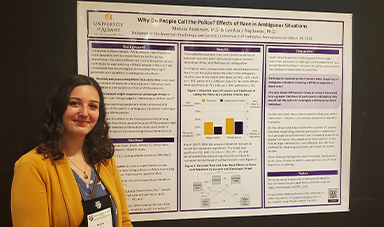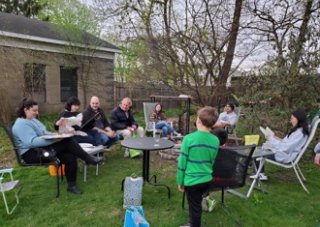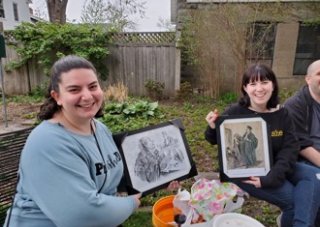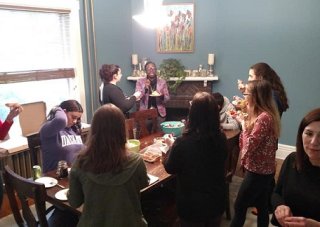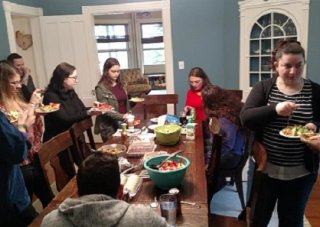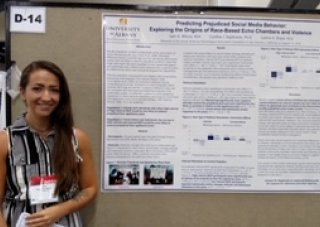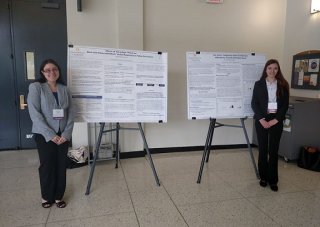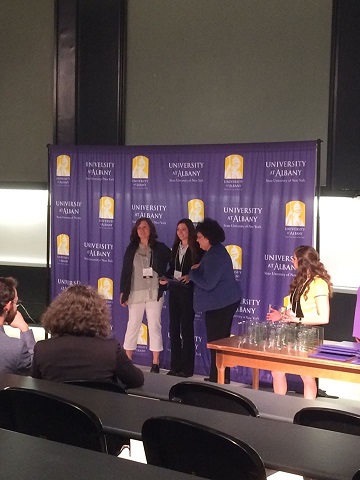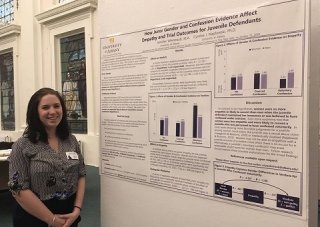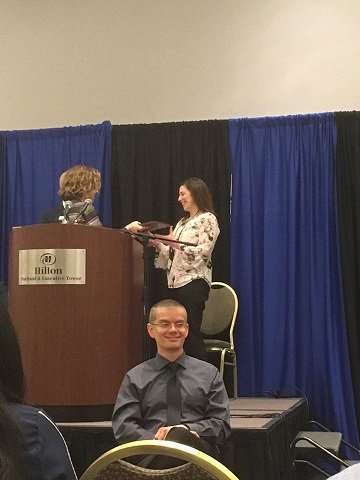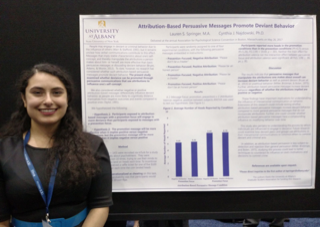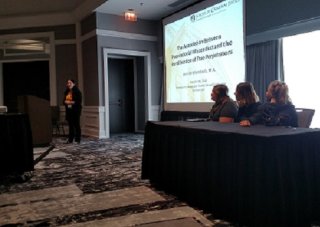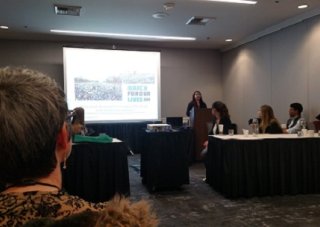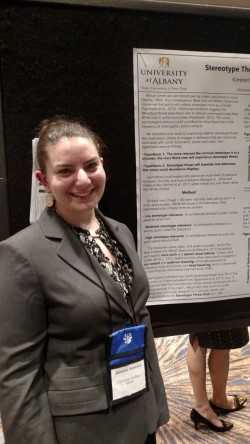Summer 2024
Maria De Sousa presented an analysis of gender differences and gender-race differences in response to ambiguous scenarios involving male subjects through the UAlbany Summer Research Program.
Spring 2024
Professor Najdowski, Charlotte, Sharon, Ee, Srishti, and Eddie went on a field trip to watch Origin (2023), a biographical drama based on Isabel Wilkerson's journey of writing the book Caste: The Origins of Our Discontents.
Amanda Scarlata presented her UAlbany honors thesis, "Undergraduate Students' Experiences with University Police: An Assessment of Feelings of Safety, Belongingness, and Well-being," at American Psychology-Law Society Conference in March 2024 – pictured below with Professor Najdowski.
Summer 2023
Cynthia Najdowski and Melissa Anderson attended the 2023 American Psychological Association Convention in Washington, D.C., where Melissa presented our research on race-based differences in perceptions of police encounters.
Spring 2023
Lab members Amanda Scarlata and Sarah Smith and lab alum Eddie Smith presenting their research at UAlbany’s Showcase Day!
Dr. Kim Bernstein did a terrific job presenting our data at the 2023 American Psychology-Law Society Conference!
Melissa Anderson at her first American Psychology-Law Society Conference! She did a fantastic job on her poster presentation, which described the results of her initial research project examining laypeople's decision-making around 911 calls.
Spring 2022
End-of-semester pizza party at Professor Najdowski's house. Congratulations to Dr. Weintraub and Dr. Bernstein!
Spring 2019
End-of-semester potluck dinner at Professor Najdowski's house.
Summer 2018
Sam Wilcox presents our research on racial prejudice in social media at the 2018 American Psychological Association Convention in San Francisco, California.
Spring 2018
Sam Strine and Lisa Dobrowolsky present their honors thesis research projects at the 2018 UAlbany Undergraduate Research Conference.
Lisa Dobrowolsky receives the 2018 UAlbany Presidential Award for Undergraduate Research.
Jenn Weintraub presents our research on juror decision-making at the Capital District Feminist Studies Consortium Conference in 2018 in Troy, New York.
Professor Najdowski receives the American Academy of Forensic Psychology and the American Psychology-Law Society (AP-LS) Saleem A. Shah Early Career Development Award at the 2018 AP-LS meeting in Memphis, Tennessee.
Spring 2017
Lauren Springer presents her PhD Comp project at the 2017 meeting of the Association for Psychological Science, in Boston, Massachusetts.
Spring 2016
Jenn Weintraub presents her PhD Comp project at the 2016 American Psychology-Law Society meeting.
Kim Bernstein presents her PhD Comp project at the 2016 AP-LS meeting.
Kim Bernstein presents her poster, "Stereotype Threat and Social Dominance in Police-Citizen Encounters," at the 2016 annual AP-LS meeting in Atlanta, Georgia.





